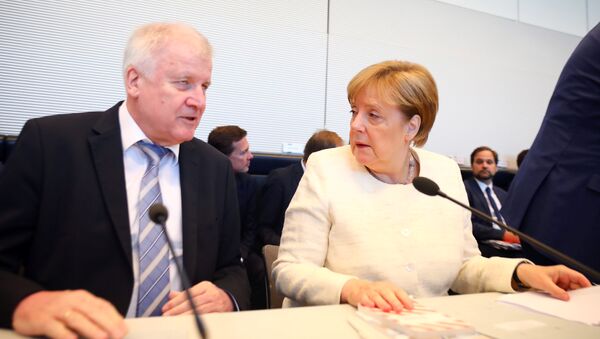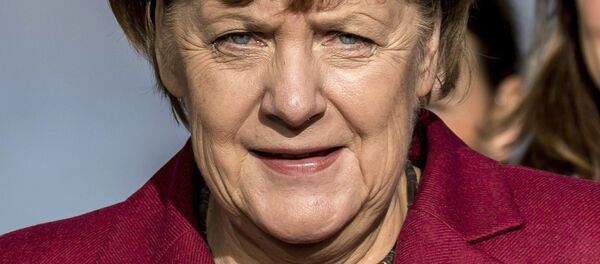The head of far-left party Die Linke, Andreas Maurer, said that even though the latest agreement between Merkel and Seehofer can be called "a small truce between Christian democrats and Christian social democrats, the deal lacks a stable basis."
"It cannot be a firm foundation for work of the [German] government in the next three and a half years. Apparently, this agreement will not be enough. Observing migration policy pursued by Germany and the European Union, we see that the bloc fails to arrive at a consensus on the matter," Maurer stressed.
READ MORE: Germany's CDU-SPD Deal on Migrants Family Reunion Freeze Insufficient — AfD
He explained that the situation will depend on the number of migrants and if this figure increases, "the migration crisis will again be topical in Germany."
"We know that German society is currently not ready to accept a large number of migrants and that the government can no longer explain it to voters. The pressure is very high, especially in local parliaments, such as in Bavaria's one," Maurer said.
In this context, he referred to Austria, which he said would try to use its presidency in the EU in order to resolve the issue of its migration policy internationally – "an almost impossible task."
READ MORE: Germany to Accept 10,000 Refugees as Part of EU Relocation Program — Merkel
"At the same time, we see that the positions of Hungary, the Czech Republic, Italy and Greece show that drastic changes are needed to solve this problem which should be only rectified by joint efforts," Maurer underlined.
Earlier, AFP quoted German Interior Minister Horst Seehofer as saying that "we have reached an agreement [on migration with Chancellor Angela Merkel] after very intense negotiations."
Seehofer added that he had dropped his threat to resign after talks with the German Chancellor's Christian Democratic Union (CDU) and that the two conservative parties had agreed to tighten border controls, as he requested.
READ MORE: Bavaria's 'Tough Dog' Reportedly Set to Lead Germany’s Federal Refugee Agency
The remarks came after Seehofer confirmed earlier on Monday that he had offered his resignation as interior minister and as the leader of the CSU. Seehofer has repeatedly pushed for a stricter migration policy to reduce the number of new arrivals in Germany.
Merkel, for her part, stressed that the compromise between the CSU and CDU would secure the principle of freedom of movement within the EU while allowing Germany to take "national measures" to limit migrant arrivals.
READ MORE: AfD: Allowing Refugee to Bring 2 Families to Germany — Precedent for Polygamy
However, this so-called open-door policy, initiated by German Chancellor Angela Merkel, prompted criticism from a number of political parties and movements that oppose migration.
In October 2017, Merkel and Seehofer announced an agreement to reduce the inflow of migrants to 200,000 people a year.
The views and opinions expressed by Andreas Maurer are those of the analyst and do not necessarily reflect those of Sputnik.




